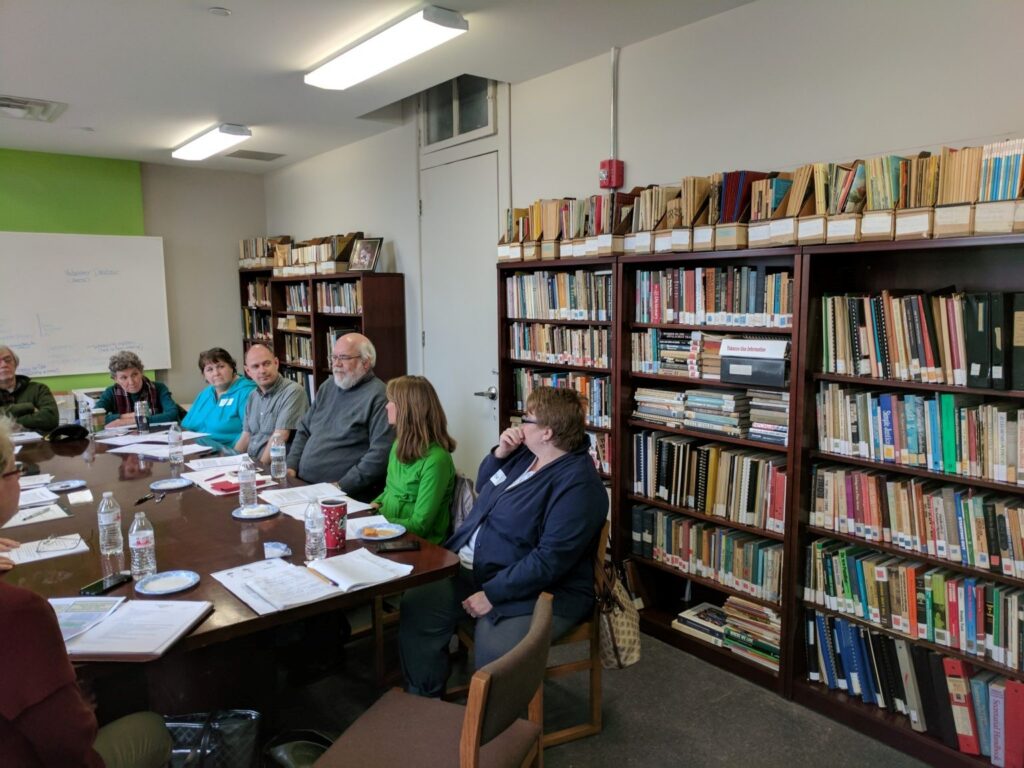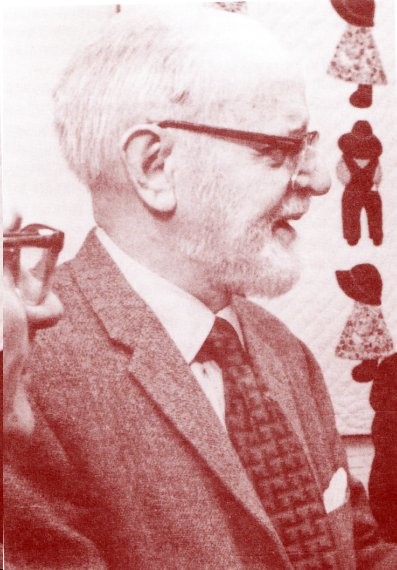This article appeared in the Volume 2, Issue 2 Fall 2020 issue of the Appalachian Curator. Click here to view a PDF of the full issue.
Cincinnati’s Urban Appalachian Community Coalition Revives Historic Foster Library for a New Generation of Urban Appalachian Scholars, Activists and Enthusiasts
By Shannon Gillie, Jeff Dey, and Michael Maloney
“Urban Appalachians are not transplanted mountain people trying to live a mountain life in the City; they are a new community who have built a new life in the City. “– Jeff Dey
Tucked in a multipurpose room in a Cincinnati neighborhood building are six bookshelves. They are tall and nondescript, but they house an intriguing collection. Jesse Stuart novels are inches away from a printed version of the 1974 Neighborhood Development Plan for a series of Cincinnati neighborhoods. A shelf below that stores Southern Exposure magazines from the 70s and 80s. Appalachian children’s books, black Appalachians, urban affairs, poetry, folklore, and Appalachian women are also nearby. And a few bookshelves over, a collection of foundational texts for understanding the Urban Appalachian experience are shelved in the Frank Foster Collection.

The history of Urban Appalachians is rich and multifaceted. The purpose of the Frank Foster Memorial Library is to curate and store physical manifestations of that history. Many people don’t realize the impact Appalachians had on the cities to which they moved over the last century, as the (often exploitative) economic supports that existed in the Appalachian region shrank. For Cincinnati, Appalachian migrants moved into neighborhoods like Over-the-Rhine and Lower Price Hill. By the hundreds of thousands, they came and settled in both inner city and suburban areas throughout Northern Kentucky and Southwestern Ohio. The best known of their settlements were “ports of entry” neighborhoods like Cincinnati’s Over-the-Rhine and Dayton’s Fifth and Wayne. Smaller cities like Covington, Newport, Middletown, and Hamilton also became home to huge Appalachian concentrations.

Once a community of Appalachians developed in Cincinnati, the need to understand their community and history emerged. What was the role of Appalachian people in the patchwork of groups populating the city? What were the needs of the community? How could they be helped? What could they offer the larger community? The library developed as a means for answering many of these questions. It continues to help document the ways Urban Appalachians are similar to many other underrepresented groups in urban contexts; they were included, for example, in the Human Rights Ordinance of 1992, along with race, color, sex, disability, religion, national or ethnic origin, age, HIV status, and marital status. The Social Areas of Cincinnati report is published for each census decade since 1970, documenting demographic shifts and needs across the city. These reports are part of the library’s contents
The Hutchins Library’s Special Collections and Archives at Berea College also has a major collection of urban Appalachian material including the archives of the Urban Appalachian Council and the papers of Philip Obermiller, Thomas Wagner and Michael Maloney.
The Urban Appalachian Community Coalition worked with a University of Cincinnati student intern this year to bring the library collection online. With the vast majority of materials now catalogued, students, scholars, youth, and anyone with an interest in understanding Urban Appalachians has the opportunity to explore the digital library.
Shannon Gillie is a graduate student at the University of Cincinnati in the DAAP School of Planning. She is also an intern for the Urban Appalachian Community Coalition, working with the library as well as a community study of the Village of Elmwood Place (near Cincinnati).
Jeff Dey is part of the Urban Appalachian Community Coalition’s Core Group in Cincinnati.
Michael Maloney is part of the Urban Appalachian Community Coalition’s Core Group and was the founding director of the Urban Appalachian Council where the Frank Foster Library originated. He is a social demographer and Appalachian scholar.